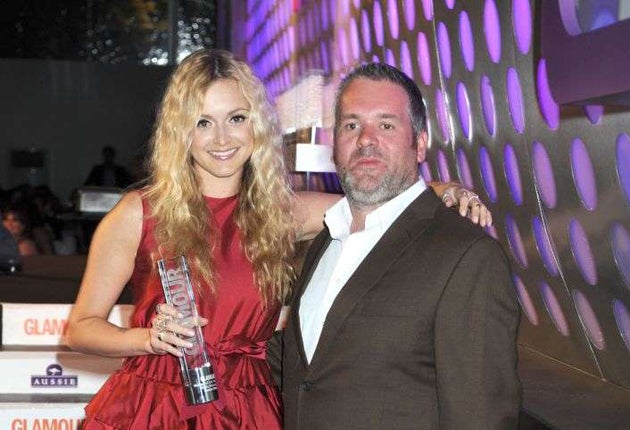Come clean on what your stars are paid, BBC told
'Disgraceful' secrecy condemned by chairman of Public Accounts Committee

The BBC was under pressure last night to release details of how much it pays star radio presenters such as Chris Moyles, Fearne Cotton and Sir Terry Wogan after the chairman of an influential House of Commons committee criticised its "disgraceful" behaviour of keeping the fees secret.
The corporation has refused to disclose details of presenter salaries to the National Audit Office (Nao) unless the public spending watchdog signs a non-disclosure agreement.
The stance infuriated Edward Leigh, the chairman of the House of Commons Public Accounts Committee. "Very few will find acceptable any such constraints on the National Audit Office's ability to investigate how a publicly funded national institution spends our money," he said.
"It is disgraceful that the NAO's lack of statutory audit access to the BBC puts the corporation in the position to dictate what the spending watchdog can and cannot see." The committee produced a report which complained that the BBC and its talent were preventing the full scrutiny of the spending of public funds and claimed that it appeared to be paying some radio presenters more than twice the fees commanded in the commercial sector.
The report on the efficiency of radio production at the BBC said the Government should arrange for the NAO to have a legally guaranteed right of access to the BBC's expenditure, including presenters' salaries, as it does for other publicly funded bodies.
"The NAO has a statutory right to examine the details of expenditure in any government department. It has no such right of audit access to the BBC, despite the fact that the corporation is funded with over £3bn of public money each year," Mr Leigh said.
The committee's report found that programmes such as Sir Terry Wogan's Wake Up to Wogan on Radio 2 cost on average twice as much per hour as the most expensive commercial breakfast show.
Lisa Kerr, the head of external affairs for the RadioCentre, which represents the commercial radio industry, said that it was time for the BBC to be more transparent.
The commercial sector has spent more than three years attempting through Freedom of Information requests to ascertain the budget for the Jonathan Ross show on Radio 2 and of the Chart Show on Radio 1, which Cotton presents with Reggie Yates. The requests have always been blocked on the grounds of commercial confidentiality.
The Commons committee found that commercial stations had been cutting hourly rates for presenters in response to falling advertising revenues and an increasingly fragmented audience but the BBC had until recently been increasing its rates. The MPs said the BBC needed to establish why it was paying more than other stations for presenters and use its standing within the industry to negotiate better-value contracts.
Tim Davie, the director of BBC audio and music, said: "We are working hard to reduce costs further and drive even harder bargains with talent, with a firm commitment to reduce the total amount we spend on top talent."
Subscribe to Independent Premium to bookmark this article
Want to bookmark your favourite articles and stories to read or reference later? Start your Independent Premium subscription today.

Join our commenting forum
Join thought-provoking conversations, follow other Independent readers and see their replies